Janet Samuel
Waru, a community situated 17 kilometres away from the city of Abuja located at the outskirt of the Federal Capital Territory. Waru is yet far from the city in terms of infrastructure and development.
Located in Apo village, the community has a total population of approximately one million residents, densely populated by non-indigenes comprising of Hausas, Igbos, Yorubas and other tribes
Despite its closeness to the seat of power, people in Waru live in dehumanizing condition poor infrastructure and lacks development and accessibility to quality
For the people of Waru, quality education remains a pipe dream. The only primary and Secondary Schools serve eight villages —Zhida, Shafe, Yimitu, Gugugu, Wasa, Borum, Takushara and Padzama itself.Women and girls are challenged everyday with the effect of underdevelopment
Farida, a 15 years old girl, narrated her story of how she became à drop out from school since last year October due to problems that would have been resolved if the situations were to be different.
“My name is Farida Ibrahim, I rounded up my Junior Secondary School( JSS) last year July, I have been staying at home since last year, I couldn’t proceed to senior secondary, because my parent could not afford to register me in the school, due to financial constraint. I was told to register with 50 thousand naira. But my Father couldn’t afford it, he lost his driving job and presently still searching for one.”
“My mum, a full time house wife with 7 siblings to feed, even if they can raise the money for my registration, I will not be able to resume because of the distance. In my community here, it is only junior secondary we have, before you can access the senior secondary secondary. You have to go as far as Apo village, which is about 5 kilometres from Waru, my parent will not be able to raise money for my daily transportation to and from school,
My parents are worried and wanted me to get married, since they couldn’t afford to sponsor my education again. I have always dreamt of becoming a lawyer in future. I like reading. I love to be educated. I want to become a better person in the society, but my present condition is preventing me to attain that level and achieve my goal. I don’t want to get married now, i want to be educated”.
Speaking on the dilapidated condition of the building in her junior secondary school, She said “in my classroom, we were about 70 students there are no enough desk to seat and study, the size of the class is very small, but we still try our best to make sure we attend classes.
“We have both morning and afternoon sessions in my school, with only one toilet to serve all the students both male and female. Students queue up to use the toilet. Most times, we go as far as climbing the mountain to ease ourselves, especially the female students to avoid toilet diseases.
Farida’s tale, a bright mind but hindered by circumstances, is now forced to choose between education and matrimony.”
Similarly, the story of Esther at 12 is quite touching, comparing her age and what she does for a living. A bread winner of her family. Raising school fees for her male siblings, deprived her of western education. She hails from Gomoje village in Bassa community of Nassarawa State, a short distance from the Federal Capital Territory.
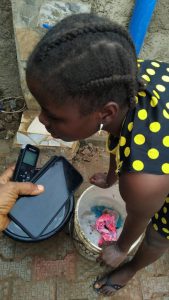
“I am Esther Dantani, this is my third year of working as a house help in Abuja. I dropped out of school to sponsor my elder and younger brother to school,
“I became a dropout from primary 4 to pave way for my male siblings to aquire both their primary and secondary education. My elder sister and myself have been in this business over time. We cannot go against our father’s instructions, he is a peasant farmer and could not afford to sponsor us academically.
” I gather my pay at the end of the year to give my Father. My brothers are in school, but I am out of school because we are very poor and rasing our school fees all together will cost him a lot. I have to do this job for my family to survive the harsh economic condition in Nigeria
“My wish would have been to become a Nurse, but my education has been retarded with the condition of my family and I have to work as a maid for my madam to earn a living.
The story of Farida and Esther all narrowed down to the same challenges confronting an average Nigeria in this present dispensation.
According to Nigerian Bureau of Statistics, Nigerian males have a significant proportion of students enrolled in schools with increasing percentage yearly from 77.55% in 2010 to 83.82% in 2012 and between 2010 and 2012 the ratio of males to females enrolled in schools is 4.5:1.
The accessibility rate of male child to school enrollment is higher when compared with female with male enrolment rate at 57% while female is at 43% . The low enrollment of girl child in formal education points to the fact that majority of Nigerian females are deprived of education in spite of their significant role in national development. The issue of access of children to early childhood education (ECE) has been a major concern all over the world.
Iheanacho Blessing, a JSS 3 student of junior secondary school Waru also lamented on the overcrowded state of their school,
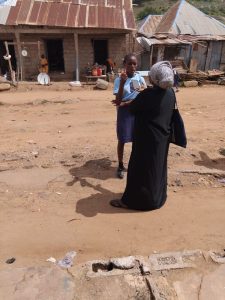
Blessing who endures the struggle to compete among the male folks in the school urge the government to ease the earning condition of their environment.
“We dont have enough space in our class. We also don’t have enough classrooms. We are 148 in our class, we fall on each other in the class. But I am not discourage, because I’m determined to be a better person in future,”
“I also advise every female student like me not to be discourage because, the environment could discourage one from coming to school. We have to compete with our male classmate to survive in class”.
Reacting to this worrying stories of girls dropping out of schools and not having access to quality education, the village head, of Waru Padzama, Habila Zhidawyi, while appreciating the Government for the construction of two classrooms, appealed for more infrastructural facilities for a conducive learning atmosphere for their children.
He called on the minister of FCT to consider situating a senior secondary school within the vicinity that would be accessible to all their children, and avoid walking a long distance to access quality education.
“The other time I was passing through the school, I entered and greeted them. I’m really happy about the renovation that they are doing, especially the toilets. Currently, there is only one toilet for the girls, one for the boys, and one shared by both male and female teachers. Beside the primary school.
“Currently, they are building two toilets. Before, there was only one toilet in the school. We need more teachers because there are not enough.
“Our prayer is that, just as they have done this job well, we want an increase in facilities for the secondary school too. We want a Senior Secondary school. Please convey our message to the relevant authorities.
“We also need solar power for the school because there is no electricity supply. We only have one borehole in the school, and it is in the primary section.”
The security man of the Junior Secondary School in Padzama, Mr Sunday, decried the lack of support from the government in terms of infrastructures within the school.
He noted that the population of the students is far more compared to the number of classes available
” The students even have to come for afternoon classes to be able to attend school because of fewer number of classrooms for them.”
“Imagine that our children have to step on each others to gain access to their classes everyday. Over 70 students in each classes of like 25 feet by 25 feet, that can barely take 20 students in other schools
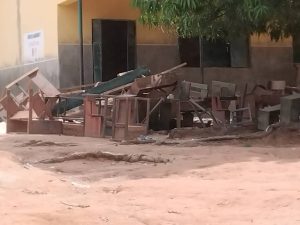
“We are suffering here, parents are lamenting everyday. We are calling on Government to come to our aid. The staff are not happy with the poor level of infrastructure. The female students have to climb mountains to defecate. Though government is trying, we need them to do more, and alleviate the plight of the students.” He said .
Speaking on the level of security within the school compound, Mr Sunday said, “there is no permanent security man in the school. All the security men are temporary staff appointed by the Parents Teachers Association. Their salary is ₦15,000, and there are only four of them, two in the morning and two in the afternoon.
From the narrative of Farida Ibrahim, Esther Dantani and
Iheanacho Blessing, Key issues discovered as the underlying causes of their poor education and accessibility to quality education are
Gender Disparity:
A significant gender gap in enrollment, retention, and completion rates in schools, with girls being more disadvantaged. Fewer girls enroll in schools compared to boys, especially in rural areas, boys are more likely to be enrolled in schools, while girls are often kept at home to help with domestic chores. Fewer girls enroll in schools compared to boys, especially in rural areas.
From my findings in one of the classrooms visited at Junior Secondary School in Waru, the population of girls to boys is on ratio two to four.
It is also the believe of an average Nigeria that the retention rates for a girl child is low. Girls are more likely to drop out of school than boys, especially during the transition from primary to secondary school with reasons to include early marriage, pregnancy, and domestic responsibilities. Girls have lower completion rates in Primary, Secondary, and Tertiary education. Boys are more likely to complete their education and pursue higher education.
In the case of “Farida”, she was confronted with having an early marriage after dropping out of school.
Poor Infrastructure:
Inadequate school facilities, including classrooms, sanitation, and technology, has hindered effective learning. In a visit to Junior Secondary school in pazama village in Waru community reveals that the school is with a population of over 4000 students with just a toilet to serve both the male and female students.
Inadequate sanitation facilities, lack of privacy, and unsafe environments for students are the present condition of Junior Secondary in Padzama village.
In the course of investigation, a visit to Junior Secondary School, Dape in Dape community along Kado district in FCT after school hour, it was observed that the entry and exit gate to the school were porous, as it is a walkway for hooligans and drug addicts.
It was observed that the so called area boys assembled themselves to take cannabis sativa ( weeds) immediately after school hour. This ugly trend is dangerous for the students to access the school and the infrastructures available especially the school library or evening prep ahead of the next day
The toilet of Dape school was in a sorry sight, as farmers took over the school land and converted it to farm land, without any fear or the danger of their actions to the student. It was also learnt that there was no security man on ground to properly secure the school compound
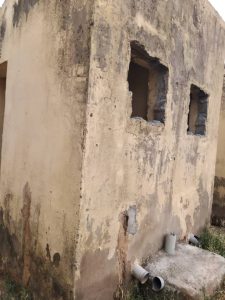
Limited Access:
Restrictions on girls’ access to education due to cultural and social norms, early marriage, and gender-based violence. Societal attitudes and norms prioritize boys’ education over girls. Girls are often seen as future wives and mothers, rather than future professionals or leaders.
Socio-Economic Factors:
Poverty, lack of financial support, and economic dependence on men are limiting girls’ access to education. Families tends to prioritize boys’ education due to perceived greater economic benefits while Girls’ education is often seen as less valuable or less likely to generate income as the case of Esther where her parents took up the responsibility of raising the male children by giving them quality education at the detriment of their female children.
Lack of Role Models:
Analysts over the years have argued that Girls may not have access to female mentors or coaches to guide and support them in their academic and professional pursuits because of limited representation of women in leadership and decision-making positions in the education sector. Statistics revealed that there are few female teachers, educators, and administrators, making it difficult for girls to envision themselves in similar roles.
Also, Scarcity of women in leadership positions, such as school principals, department heads, and education policymakers discourages girl child from achieving her full potential.
Stereotypical portrayals in Media and textbooks often depict women in traditional gender roles, rather than showcasing their achievements in various fields.
Distance:
A major challenge to accessing education for girls in the FCT, where there is a junior secondary school, the senior secondary school will not be available for continuation of their education Distance can significantly impact a girl child’s accessibility to quality education in several ways
Call to Action
It is imperative that stakeholders, including government authorities, educational institutions, and the community, come together to address the issues of education quality and accessibility for women and girls in the FCT Abuja.
By investing in infrastructure, implementing necessary reforms, and prioritizing gender equality in education, we can empower women and girls to reach their full potential and contribute meaningfully to society.
Speaking with a representative of a Non Governmental Organization (NGO) who is widely known for defending the right of women and girls, the Regional Representative,
Rosa Luxembourg Foundation, West African, Dr. Claus Dieter Koning, said children and women have the right to education base on the child right act.

Koning opined that data released by a group recently observed that domestic workers are women and their rights are being violated at the age of school.
He called on government at all level to ensure that children within FCT and in the country as a whole have access to quality education, have their degree and get a job that will sustain them.
In her reaction, the Director of the Cee- Hope Nigeria, Betty Abbah urged the Federal government to provide basic infrastructure that will encourage an average Nigeria children to access quality education. She emphacized the need to enforce the child right law in Nigeria, to reduce the rate of out if school Children who are compelled to do domestic work to earn a living for themselves and families.

“The children have to indicate interest to go to school as done in Lagos state with project zero, “no child no school” she stated.
For access to school, she encouraged the Federal Government and relevant ministries to come together and have the political will to support and come up with policies that will encourage the children and make education accessible to them.
Betty advised the Federal and State Government to Invest in infrastructure by building and renovating schools, provide sanitation facilities, and integrate technology.
She called on the Minister of education to effectively execute policies and initiatives promoting gender equality in education, provide scholarships, mentorship programs, and address cultural and social barriers.
As at the time of filing this report, all effort to speak with the representative of government official in education board proved abortive. Attached here is a letter to the Junior Secondary education board, Abuja to have an audience with our representative which did not yield result.
This investigation is for the GENDER, THE AGENDA project for Gender Strategy Advancement International (GSAI) supported by the Wole Soyinka Center for Investigative Journalism (WSCIJ), and the MacArthur Foundation.
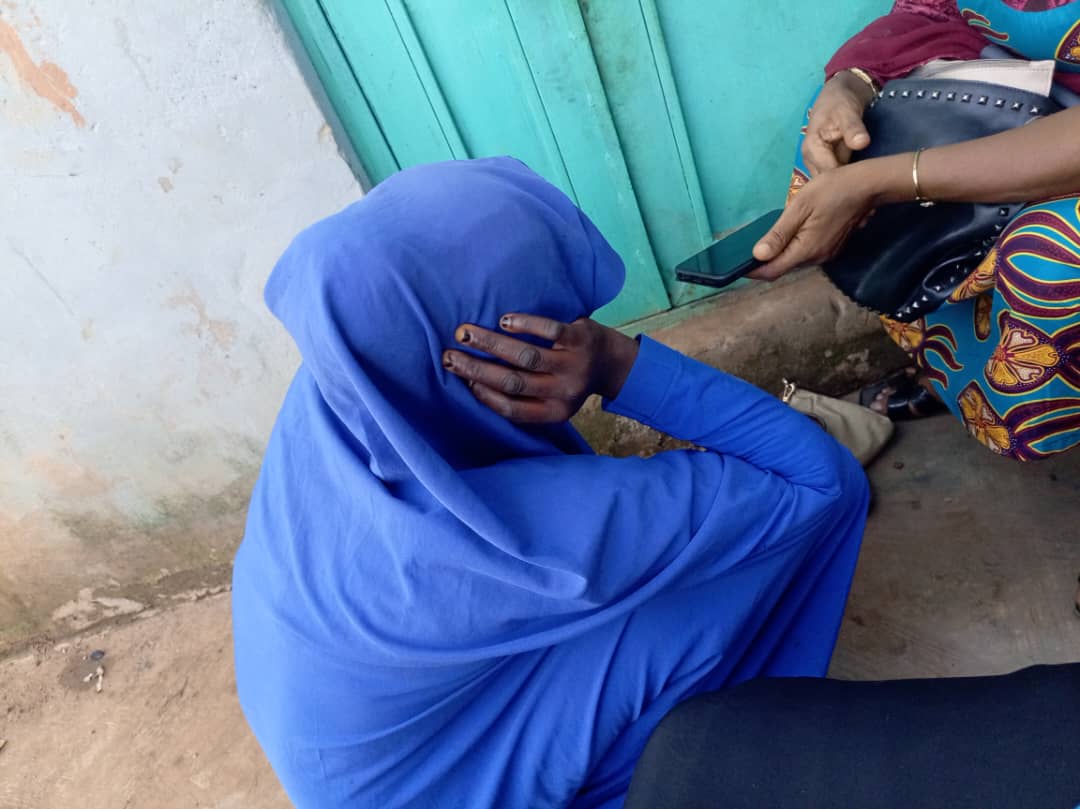
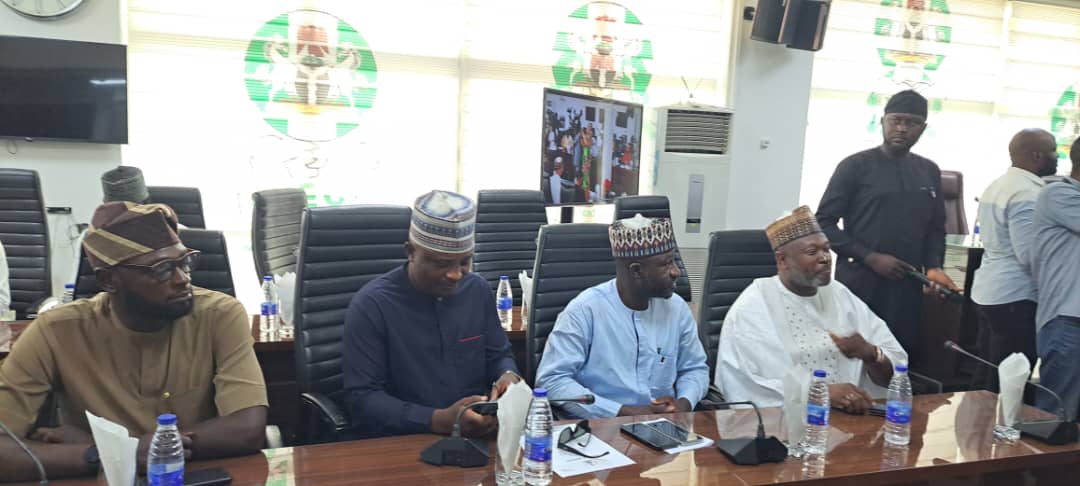

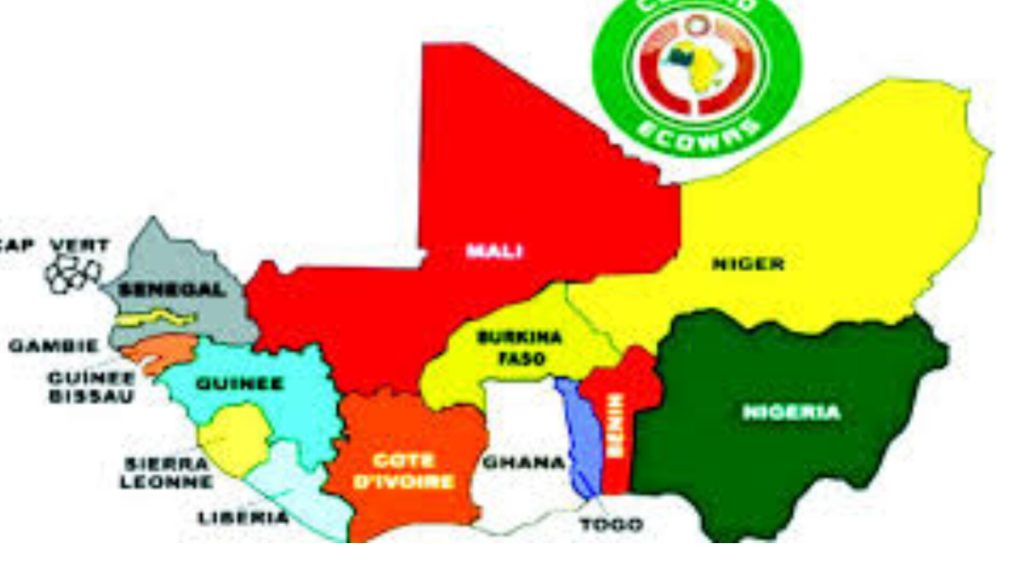
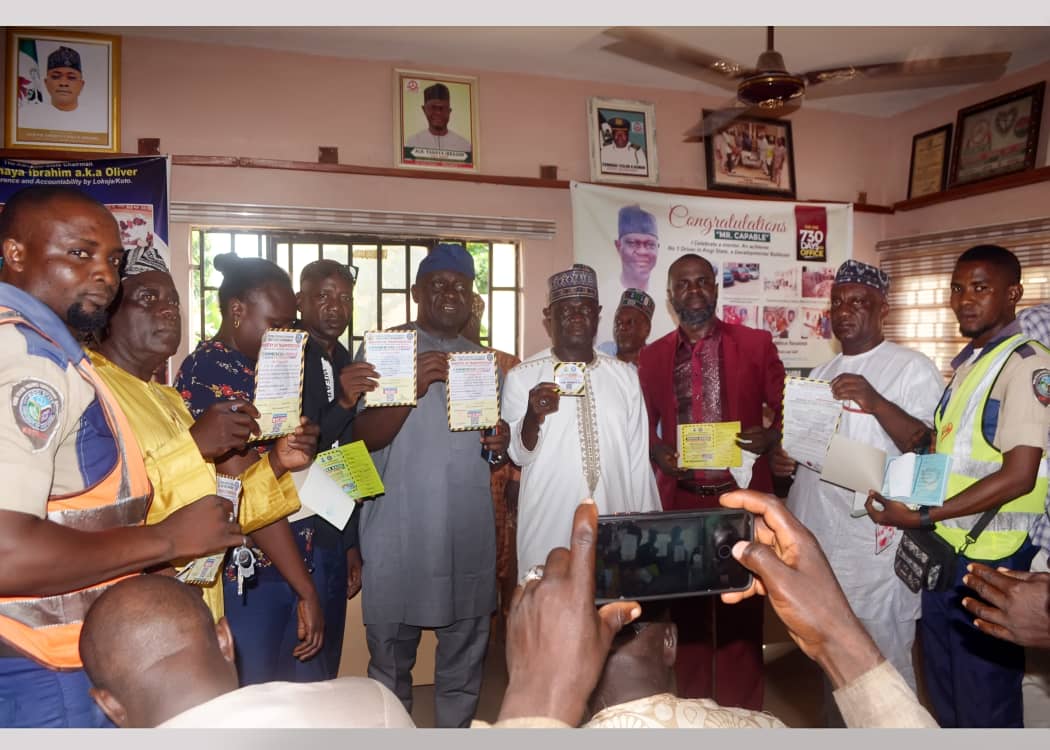

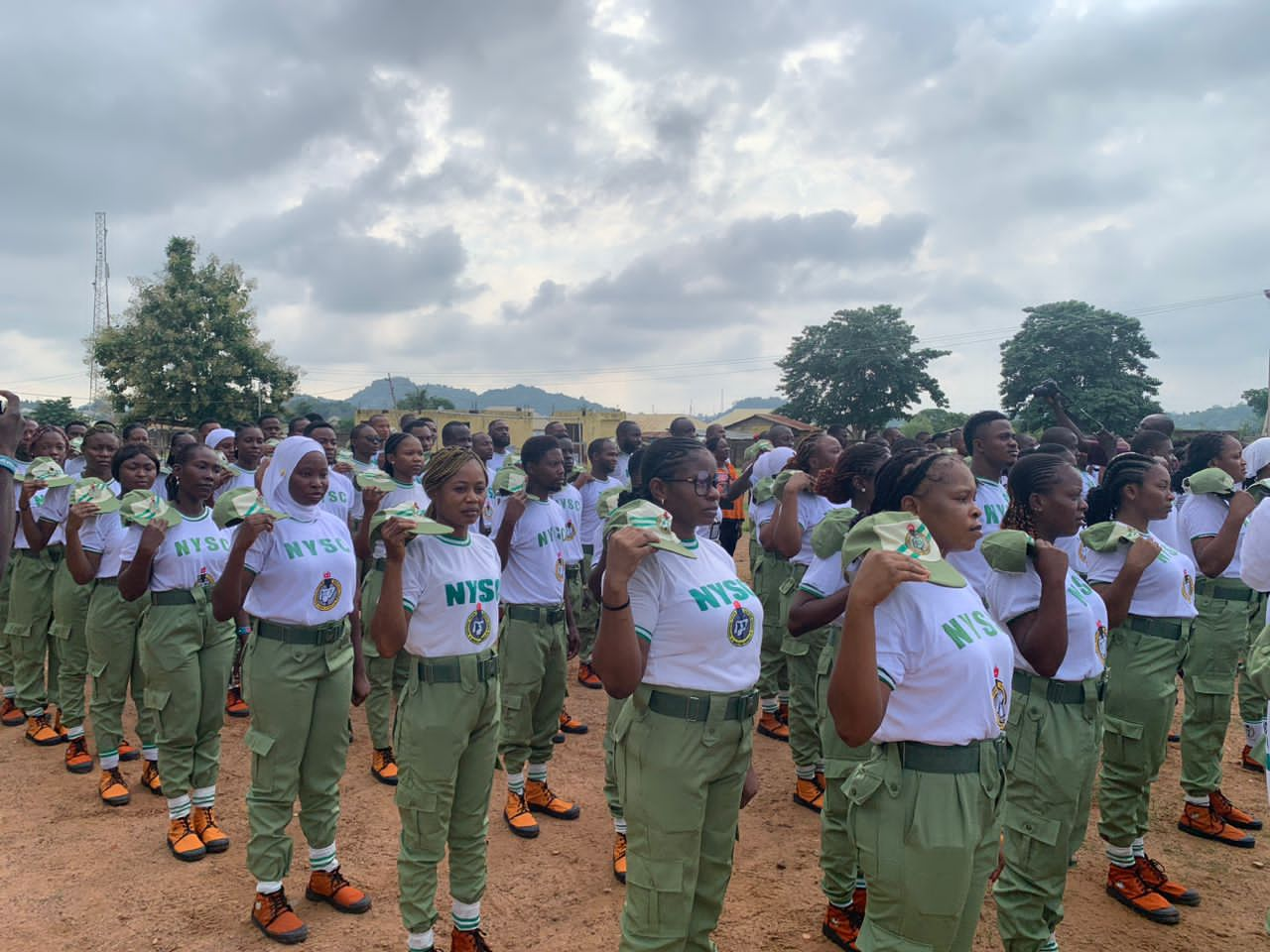
GIPHY App Key not set. Please check settings